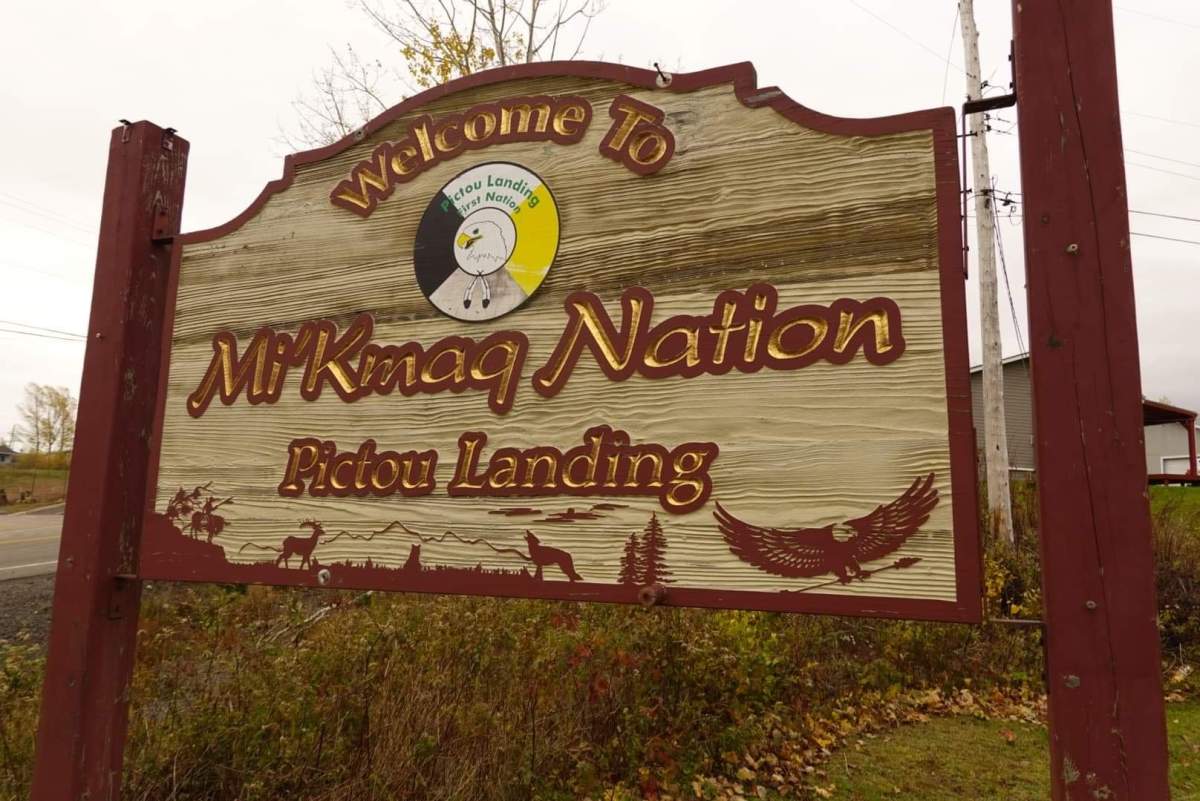The Indigenous moderate livelihood fishery in Nova Scotia has a new participant.

Pictou Landing First Nation this week became the latest Mi’kmaw band to start fishing for lobster outside the federally regulated season.
Like the other bands involved in the new fishery, Pictou Landing is citing treaties from the 1700s that were affirmed in a landmark Supreme Court of Canada decision in 1999.
That ruling, known as the Marshall decision, confirmed that First Nations in the Maritimes and Quebec have a treaty right to fish, hunt and gather when and where they want as a means of pursuing a moderate livelihood.
READ MORE: Mi’kmaq solidarity rally to be held at Clearwater Seafood Market in Bedford
Pictou Landing First Nation has drafted a self-regulated fisheries management plan and it handed out fishing licences and trap tags on Wednesday.
The band’s lobster fishing season in the Northumberland Strait opened Oct. 1 and will remain open until Dec. 14, even though the regular commercial lobster season doesn’t reopen until the middle of next May. The band says it will also fish during the federally regulated season.
The management plan, which includes a long list of conservation and safety measures, does not indicate how many licences the band will issue but imposes a limit of 30 traps per fisher. Commercial fishing boats in the eastern section of the Northumberland Strait are allowed to use between 250 to 280 traps each.
“We look forward to continuing our work with Chief Paul to implement their Treaty Right. As always, conservation remains a priority and DFO will never move forward with any plan that would threaten stocks,” said Jane Deeks, press secretary for federal Fisheries Minister Bernadette Jordan in an emailed statement to Global News.

The band’s policy and protocol document refers to the fishery as the “Netukulimk livelihood fishery.”
Netukulimk is defined as the use of natural resources for the “well-being of the individual and the community by achieving adequate standards of community nutrition and economic and spiritual well-being without jeopardizing the integrity, diversity or productivity of the natural bounty.”

Get breaking National news
The band’s fishing zone will be limited to two federally regulated Lobster Fishing Areas — 26A and 26B — which include the southeastern part of the Northumberland Strait and the entire west coast of Cape Breton.
The federal Department of Fisheries and Oceans has allocated 941 commercial lobster fishing licences for those two areas. That number includes 32 communal commercial licences for Indigenous bands, which are separate and distinct from the licences tied to the moderate livelihood fishery.
READ MORE: Sipekne’katik First Nation re-elects Chief Michael Sack for 3rd term
No one from Pictou Landing Chief and Council was available to speak with media on Thursday.
Reached by phone, however, Sipekne’katik First Nation Chief Michael Sack — who led the launch of Nova Scotia’s first Indigenous livelihood fishery — congratulated the community on the launch.
“I’m happy for their members that can exercise that right and have the support of their communities to do so,” he said. “A lot of our communities have the same struggle… I think also strength in numbers, it helps as well.”

Pictou Landing is the third Indigenous community in Nova Scotia to launch a livelihood fishery; the first was the Sipekne’katik First Nation, followed by the Potlotek First Nation in Cape Breton. Both the Bear River and Membertou First Nations have declared intentions to launch their own as well, but those plans are still in the works.
Sack said he’d like to see the momentum expand beyond Nova Scotia, to other Indigenous communities whose treaty and court-protected rights have been denied or sidelined.
“Fisheries is the tip of the iceberg so there’s a lot of work to do, and the whole nation-to-nation (relationship) we’ve been pushing for,” he said.
“Treaties were made and they should have been kept up on both ends of the bargain, and it hasn’t happened. So I would commend anyone that steps up and fights for their right.”

READ MORE: Bear River First Nation to push ahead with its own livelihood fishery plan
On behalf of Jordan, Deeks said Fisheries and Oceans Canada will work with any First Nation that wants to assert its right to fish for a moderate livelihood, noting that honouring treaties is “critical to reconciliation.”
“The events in Nova Scotia have brought the Treaty Relationship to forefront of so many conversations across Canada,” she wrote. “We are all Treaty people, and it is important for every Canadian to understand the spirit and intent of these Treaties.”
– With files from Global News’ Elizabeth McSheffrey. This report by The Canadian Press was first published Nov. 5, 2020
- Danielle Smith says Alberta will withhold funding for judges without more input on selection
- Canada expects U.S. to stay out of domestic affairs: national security official
- Former prime minister Stephen Harper’s official portrait unveiled in Ottawa
- MP Nate Erskine-Smith ‘exploring’ Ontario Liberal leadership, seeks seat








Comments